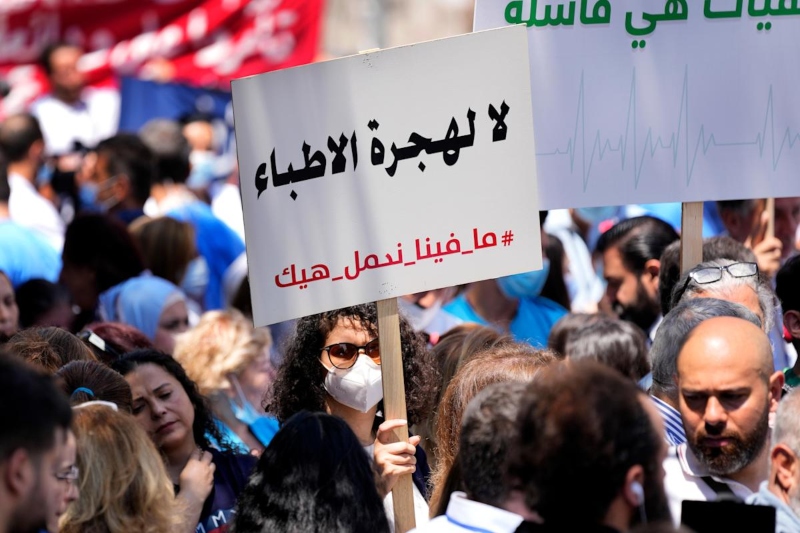

lebanon's doctors and hospitals go on a 2 day strike


Only emergency cases and dialysis patients will be admitted to hospitals during the strike, which concludes on Friday, according to the unions.
The local currency has lost more than 90% of its value against the dollar since the crisis began in October 2019, wiping away salaries and savings. Thousands of doctors and nurses have left the country, and a substantial number of pharmacies have closed, resulting in serious shortages of drugs and medical equipment.
Several hospitals have issued warnings that they will have to close due to a lack of funds to cover their bills and pay their staff’ salaries.
“Hospitals will close because they can no longer operate.” “When we don’t have access to cash, we have to pay cash,” said Suleiman Haroun, the leader of the private hospitals’ union, who joined the protest in Beirut with a few hundred colleagues.
He blamed Central Bank policies for the sector’s demise.
Meanwhile, the Lebanese pound continued to drop against the dollar, selling on the illicit market for roughly 35,600 pounds on Wednesday. For 22 years, the Lebanese currency was fixed at 1,500 pounds to the dollar, until the crisis in late 2019.
The US Department of Labor experiences its worst staff shortage in history because it lost twenty percent of its employees…
The Communications Ministry of Indonesia seeks to develop a public endowment fund, which would strengthen independent journalism across the country…
Radio Free Asia (RFA), a U.S. government-funded news network that broadcasts in nine Asian languages, has virtually fired everyone in…
The Trump government revealed its intent in action to consider layoffs on a grand scale, under which agencies of the…
The Trump administration has launched a sweeping initiative to monitor around 450,000 unaccompanied migrant children who were placed during the…
During the May half-term Gatwick Airport could experience delays because workers from two different groups plan to strike about pension…
This website uses cookies.
Read More